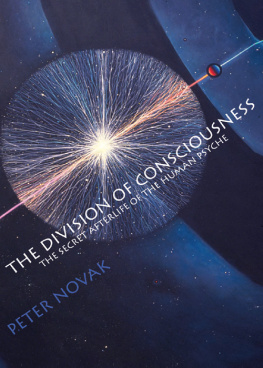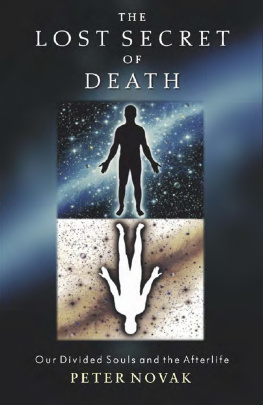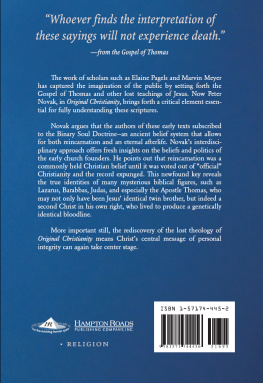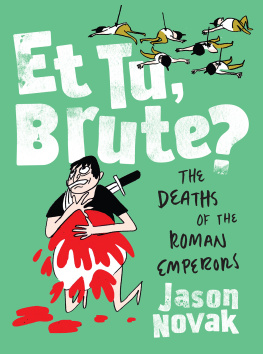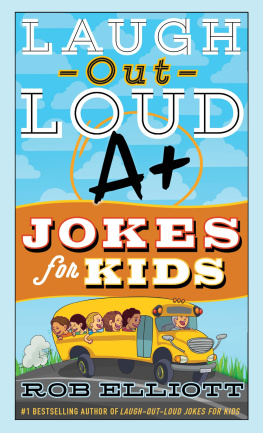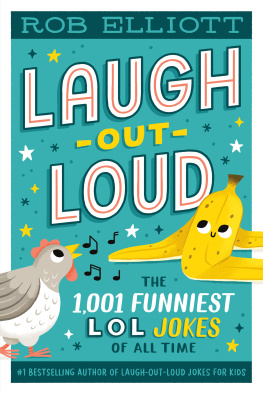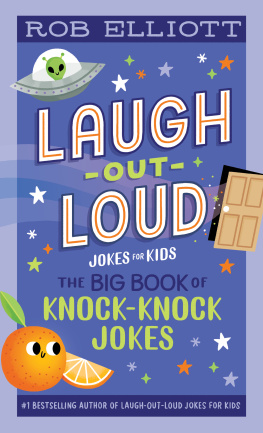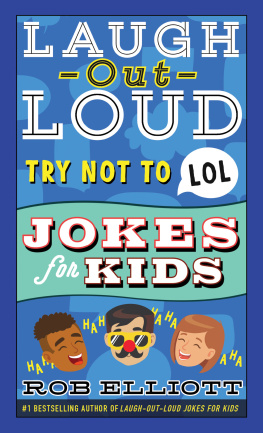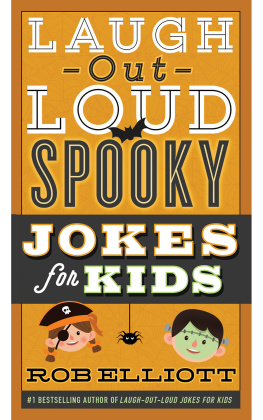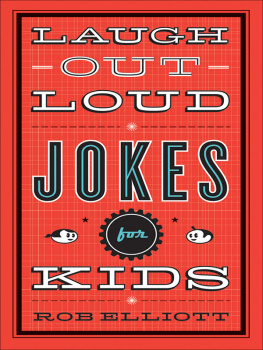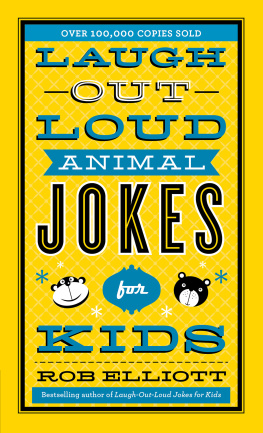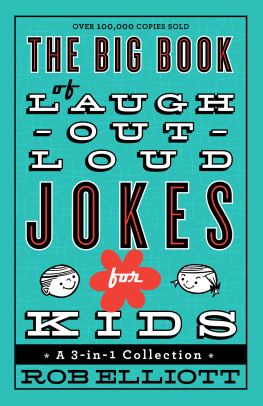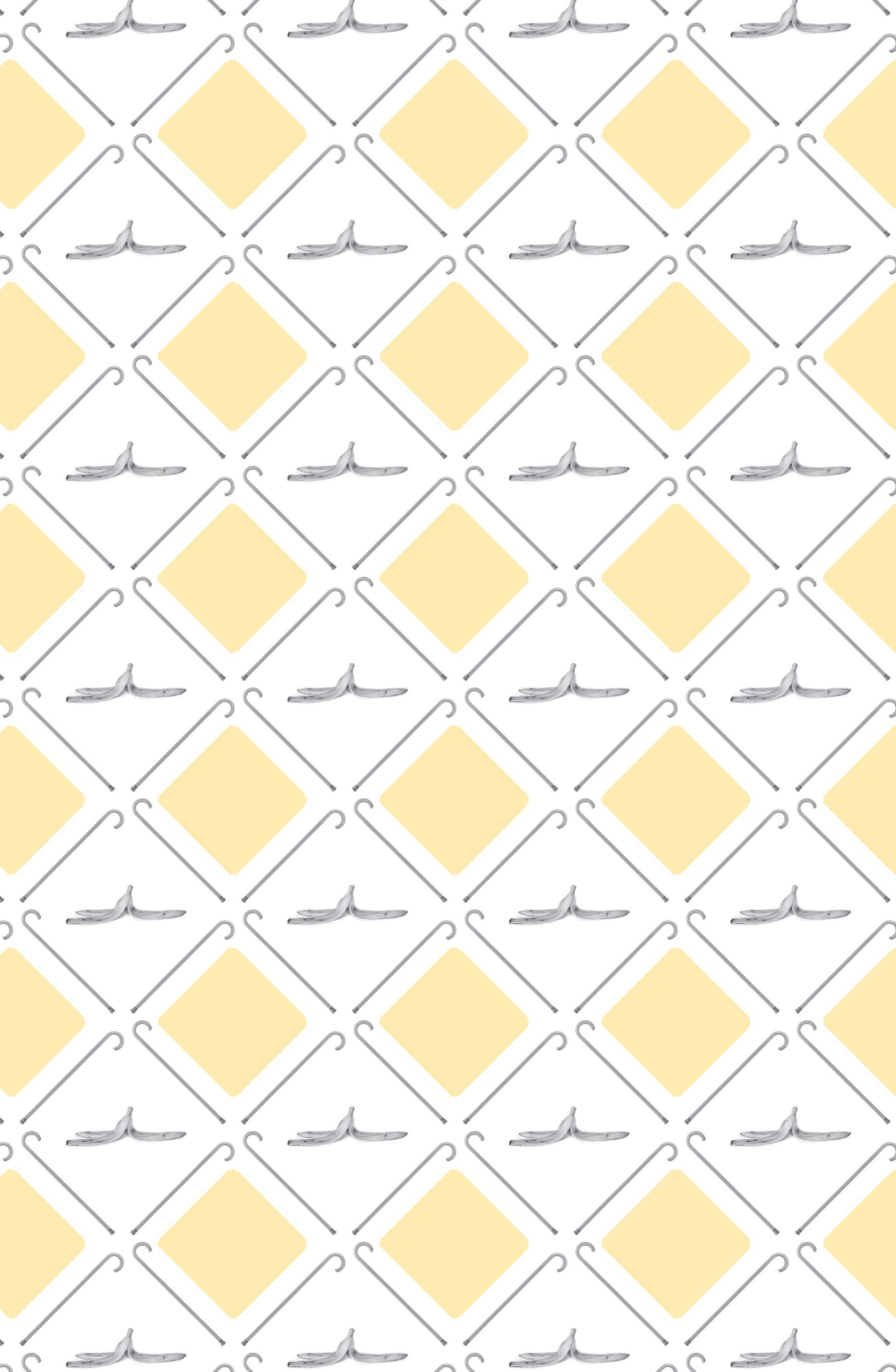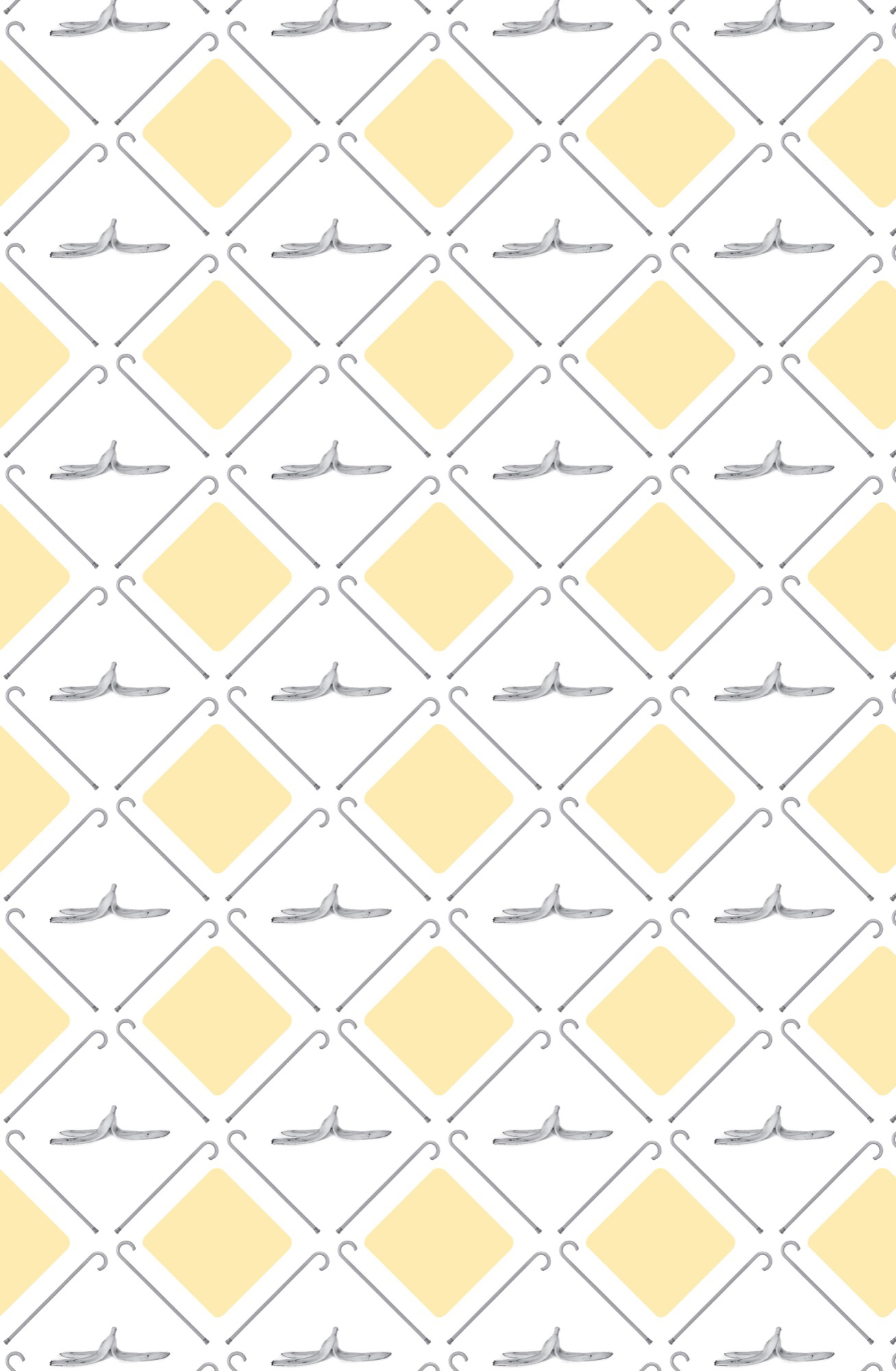But, seriously...
Thank you for downloading this Touchstone eBook.
Join our mailing list and get updates on new releases, deals, bonus content and other great books from Touchstone and Simon & Schuster.
C LICK H ERE T O S IGN U P
or visit us online to sign up at
eBookNews.SimonandSchuster.com
CONTENTS
Is it possible to die from laughing?
Its an extremely rare occurrence, but its been known to happen. In 1999, according to the San Diego UnionTribune , a man in his thirties heard a joke in a Seattle bar that inspired a thirteen-hour laughing fit. The doctors were unable to stop his convulsions, and he died of heart failure. When the patient was asked what was so funny, he managed to say, between laughs, There was something about an antelope. And shellfish. I remember a part about shellfish.
INTRODUCTION
Dad always thought laughter was the best medicine, which I guess is why several of us died of tuberculosis.
Jack Handey
A lthough Im not exactly old, I seem to be headed in that general direction. I was born in 1948, which brings up an important question: How much longer can I still pretend to be middle-aged?
Growing older was something that happened to my grandparents. Like so many of my fellow baby boomers, I thought our generation would remain forever young. Apparently we were misinformed. And now that Im finally coming of age, Im starting to experience some of the symptoms Ive been hearing about for years, such as misplacing my car keys, forgetting names, and noticing various aches and pains that seem to have no rational explanation.
Ive been vaguely aware that a growing number of the jokes that friends were telling me, or passing along over email, had to do with things like memory loss, Alzheimers, long marriages, or other concerns of older people. Even so, I wasnt ready to acknowledge that any of this had much to do with me.
But all of these clues must have been loitering in my unconscious mind, because early in 2015 it suddenly occurred to me to compile a book of jokes about growing older. After all, I couldnt be the only one who would appreciate a chance to laugh about the approach of sixty, seventy, or some other significant birthday. So I started looking for jokes on age-related topics, and when I finally had enough, I selected the best ones, along with some wonderful cartoons, for this book.
Remember jokes? A priest, a minister, and a rabbi walk into a bar. Three nuns meet Saint Peter at the Pearly Gates. Although comedians stopped telling them long ago, jokes are still around, and one purpose of this book is to make sure they stay around.
With a sensitive subject like aging, it may be worth pointing out that jokes just dont portray the full scope of reality. They ignore a great deal that is true and reassuring because those things dont happen to be funny. And the point of jokes and cartoons, and certainly the point of this book, is to make you laugh.
Laughter may not be the best medicine, but a growing body of research is showing that it has some real health benefits:
It strengthens the immune system.
It relaxes the body and reduces stress.
It lowers blood pressure and increases blood flow.
Laughter also increases the ability to tolerate pain. This brings to mind Norman Cousins, longtime editor of the Saturday Review , who famously checked himself out of a hospital and into a hotel in the mid-1970s after being struck by an especially painful and life-threatening form of arthritis. After putting himself on a regimen of Marx Brothers and television sitcoms, Cousins described the joyous discovery that ten minutes of genuine belly laughter had an anesthetic effect that would give me at least two hours of pain-free sleep.
But waittheres more. Much like exercise, laughter expands the blood vessels and helps prevent cardiovascular disease.
Some researchers think it may offset memory loss.
It releases endorphins, which improve a persons mood.
Laughter promotes optimism, which in turn improves resiliency.
It is also thought to stimulate learning, productivity, and problem solving.
And according to a seven-year study of more than fifty thousand Norwegians, older people with a sense of humor had a lower mortality rate than their counterparts who did not laugh easily at daily events.
Now, even if only half of these claims are actually true, the jokes in this collection should have a real health benefit. Of course, a lot of things have a real health benefit. But how many of them are this much fun ?
The jokes that follow come from a variety of sources, including other books. (All joke books borrow from previous collections, although almost none of them admit it.) Some made their way to me from friends and fellow collectors, and others turned up on the internet, often in several different versions. In almost every case I have rewritten them. And all of the cartoons first appeared in the New Yorker .
A number of these jokes will be familiar, and I hope readers will greet them as old friends. Others, I trust, will be entirely new, and still others might strike the reader as completely wrong, because most people prefer the version of a joke that they already know.
None of the jokes carry an authors name because, unlike comic routines, one-liners, and cartoons, jokes dont have authors. As the legendary folklorist Gershon Legman observed in Rationale of the Dirty Joke , nobody has ever told a joke for the first time. Or, as the old saying goes, there are no new jokesonly new audiences.
Quotations do have authors, but a few of the one-liners in these pages have often been credited to the wrong people. (George Carlin was very talented, but he didnt come up with all the lines that are commonly ascribed to him.) Where it was impossible to determine the author of a quote with any certainty, no name is listed. Corrections from readers are welcome, but please be careful: Dont believe everything you read on the internet just because theres a picture with a quote next to it.Abraham Lincoln.
There are jokes and cartoons here about many things, including death. A certain amount of bad taste is unavoidable and even necessary in this book because life is full of bad taste. But I have mostly avoided crudeness, vulgarity, and four-letter words unless they were critical to the joke.
There are also jokes here that depend on wordplay. Its easy to disparage puns, or to treat all puns as bad puns, but I side with the satirist Jonathan Swift, who observed long ago that punning is a talent which no man affects to despise but he that is without it.
Puns may also be good for you. Wit and puns arent just dcor in the mind, writes Adam Gopnik. Theyre essential signs that the mind knows its on, recognizes its own software, and can spot the bugs in its own program.
I have introduced each chapter with a very short essay that I hope will provide some context and, from time to time, some cheerful news about the subject at hand. But if youd prefer not to read anything serious in a book like this, be my guest.


